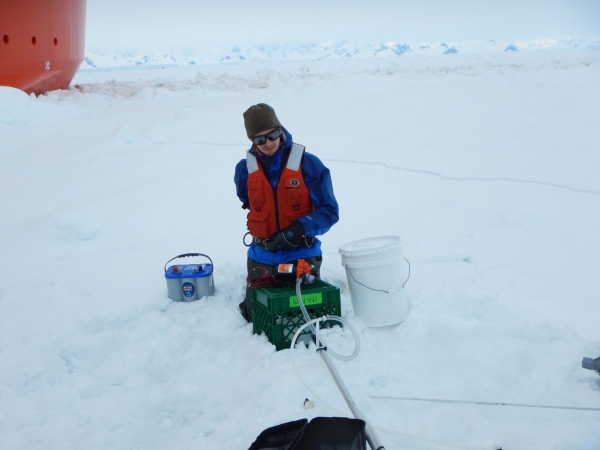The effects of global climate change already are resulting in the loss of sea ice, accelerated sea level rise, and longer and more intense heat waves, among other threats.
Now, the first-ever survey of planktonic lipids in the global ocean predicts a temperature-linked decrease in the production of essential omega-3 fatty acids, an important subset of lipid molecules.
A significant implication of the survey is that as global warming proceeds, there will be fewer and fewer omega-3 fatty acids produced by plankton at the base of the food web, which will mean less omega-3 fatty acids available for fish and for people. Omega-3 fatty acid is an essential fat that the human body cannot produce on its own, and is widely regarded as a “good” fat that link seafood consumption to heart health.
The survey analyzed 930 lipid samples across the global ocean using a uniform high-resolution accurate mass spectrometry analytical workflow, “revealing heretofore unknown characteristics of ocean planktonic lipidomes,” which is the entirety of hundreds to thousands of lipid species in a sample, according to a new paper led by authors from the Woods Hole Oceanographic Institution (WHOI).
Read more at: Woods Hole Oceanographic Institute
MIT-WHOI Joint Program student Henry Holm pumping seawater for lipid samples from beneath sea ice on the Western Antarctic Peninsula, 2018. This is for a WHOI-led study that conducted a global survey of lipids in the ocean in order to analyze omega-3 fatty acids. (Photo credit: Benjamin Van Mooy / © Woods Hole Oceanographic Institution)


